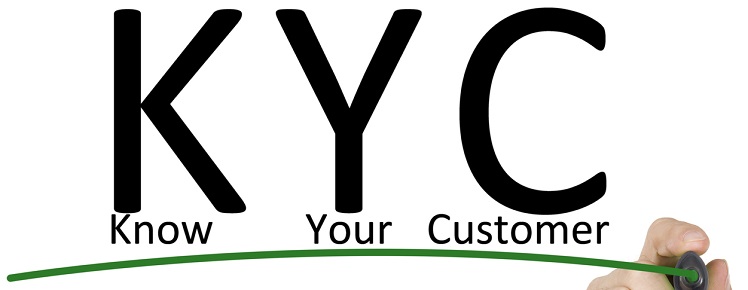Articles
Can Blockchain Solve KYC and Digital Identity? Maybe.
- By Andrew Deichler
- Published: 4/20/2018

LAS VEGAS -- Blockchain proponents believe the technology has broad applications for treasury and finance. But could blockchain solve one of the biggest compliance headaches in treasury and finance—namely, know-your-customer (KYC) requirements?
Jeremy Lappin, CEO of Candex, stressed that identity is incredibly important for blockchain and, by extension, KYC. “If you could envision a blockchain where each of us have some sort of identity as ours, and then the world could connect our identity to various systems around the world, it would lead to a lot less logins,” he said during a session at ETA Transact.
Lappin added that this would, make it easier for other people and organizations to get information on you, and it would in turn make it easier for to know what information organizations are compiling about you. “So it becomes a transparent place where you exist and the world can know it,” he said. “Now, obviously, there needs to be some innovation that needs to happen to get this to the goal line. But I do think it’s moving in that direction and that would be a very important outcome of the blockchains that become standardized.”
All of that would likely be music to the ears of corporate treasury professionals. On the whole, they have generally been apprehensive about blockchain technology because there have been few tangible solutions that have been developed. But if a blockchain solution allowed them to only hand over KYC information once a be done with it, virtually every treasury professional is going to be drinking the blockchain Kool-Aid.
THE HOST PROBLEM
However, as is typically the case with blockchain technology, what sounds great in theory has a lot of complications in practice. Scott Goldthwaite, senior vice president of operations for Aliaswire, noted that when public key infrastructure (PKI) was first introduced, the theory was that everyone on the planet would receive their own public and private keys assigned to them and their digital identities would follow them wherever they go. “But here we are, 25 to 30 years later and we still don’t have public and private keys assigned,” he said.
The crux of the problem, Goldthwaite believes, is that there is a question over who is actually going to issue that key. “Who is a trusted source? Way back when, AOL was one of the ones that was going to do the issuing. Well, there are probably a lot of people in this room who don’t even know who AOL is,” he said. “When you have an infrastructure like that, that impacts 300 million to 4 billion people, there’s a question of who is going to be the initiator on that. A year ago, if Facebook said, ‘We’re going to issue a digital identity and we’re going to use a blockchain,’ that would have been great. A year later, with people knowing what they know about what these online services are doing with their privacy and their information, maybe Facebook wouldn’t be a good source for that.”
Goldthwaite concluded that establishing a unique identity on a blockchain could theoretically solve a lot of KYC/AML issues, but it could be a major challenge to find that trusted source to host the technology. “Until that’s been worked out, we’ll probably be having this conversation for a little while longer,” he said.
CHANGING THE GAME
Once a clear winner is decided, however, blockchain could hopefully cut down on the privacy issues that have people up in arms against Facebook right now. Joshua Mather, tech evangelist for Vantiv Worldpay, noted that when you submit your data to a third party, you trust that they are going to behave appropriately with it. “Sometimes you’re asked for data that you shouldn’t be giving out,” he said. “I think that may there’s an opportunity there for blockchain to help facilitate that. And there are companies out there like Civic who are utilizing mechanisms in a public blockchain that will allow people to scale back the use of data of their personal identity.”
Goldthwaite added that when people give over their data to an online service like Facebook and LinkedIn, they don’t know where that data ends up. “In a blockchain world, the user of that data would have to upend a ‘block’, so you would know who is upending your block and accessing your data,” he said. “You would have a trace of who looked at it, where it went and what they did with it. Right now, we have no clue how that works. So certainly it would help with privacy and protection of your own personal data. You’d know who was accessing it and they would be unable to alter it.”
Copyright © 2024 Association for Financial Professionals, Inc.
All rights reserved.

